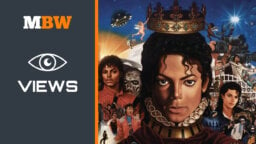The following MBW op/ed comes from Dan Symons (pictured), founder of SPLIT / LIP, a Web3 and metaverse business consultancy for rights owners. SPLIT / LIP says that it is designed to offer consultancy to artists, rights owners and rights acquiring businesses to maximise their Web3 & Metaverse opportunities. You can read more about Symons and SPLIT / LIP here.
It’s virtual and it got real. Facebook rebrand with the first four letters of what they are trying to conquer, Microsoft acquire Activision Blizzard, Sony join Tencent as shareholders in Epic Games who have acquired Harmonix and Bandcamp.
Spotify enter the Metaverse via ROBLOX, in whom Warner Music Group (WMG) have a minor stake and where artist avatars have already been performing ‘live’. While we’re at it, Netflix tag games on to their subscription offering. What’s going on?! It must be the gamification of everything.
I was reading an article about how long Erik ten Hag will be Manchester United’s manager. It was calculated by video game data, the same game used by football scouts all around the world to add extra insights regarding players they are looking to sign.
It was another in a long line of various articles and podcasts touching on how the growing influence of gaming, and more relevantly gaming tech and data, has seeped into other parts of our everyday real life existence.
There has been so much ‘corporate overlap’ between culture, music and gaming recently I decided to have a proper rummage. I discovered gaming potentially has a big marketing problem; it’s name.
Perceived by many as something throwaway, a scoffable vehicle for kids’ procrastination, the gamification of everything has begun and requires a rethink over the entire notion of what gaming actually is, what it means what it has become and where it’s going to end.
Gaming technology or more relevantly GAME ENGINES have developed virtual reality graphics so powerful they can be deployed to solve issues faced by multiple industries. Automotive, notably the VW Group, have turned to Epic Games powered UNREAL ENGINE to help with product design, testing, and prototyping largely via the development of digital twins i.e. virtual world immersive and interactive replicas.
They speed up elements of what is a notoriously iterative, time consuming and presumably tedious and expensive process, and get to the ‘realisation piece’ a hell of a lot quicker, creating physical manifestations that open up the digital twin, and therefore the product, to a huge potential audience.
Why is a bloke who has only ever worked in the music industry prattling on about Automotive engineering solves? My point is that the technology has become transferable and ubiquitous.
If you look at the VR advancements in medicine, and how that is pushing the boundaries of surgery and rehabilitation, the notion of it saving lives is a long way from being a game. Similarly, last week the US Military announced it is building its own Metaverse to enhance training capabilities and “fly against whatever threat we want.”
Again, this is not play-time. A Metaverse very simply is a destination point where characters, or avatars, interact and do stuff online. The term means different things to different entities but at its core it’s a digital reality 3D version of whatever and wherever people choose to be. It’s a bit of a ‘catch all’ term as it suggests one almighty overarching destination. However, at this relatively early stage, there are currently many Metaverses. A true Metaverse would be borderless and allow seamless transition from platform to platform. More of that later.
A process of using digital twinning or VR to solve highly technical problems is no different to any other part of the Metaverse you may, or may not, be aware of. Aside from automotive, medicine and the military, this is seeping into civil engineering, town planning, fitness, sport, film, aviation, architecture, Government, sales, education and, of course, music. Oh, and porn… let’s not forget pornography… a conversation for another day. The tech is everywhere and, if FORTNITE is the (age appropriate) Metaverse your kids are spending too much time in, then you wouldn’t be hypocritical enough to want to road test that new Audi online, or decry a surgeon in a VR headset, right?
I was one of those parents perpetually demanding their kid spends less time ‘gaming’, more time engaged in the real world. The Pandemic showed me I was wrong. FORTNITE became a social life-raft for my son and thousands like him during COVID-19. This was not the idle time wasting of a generation incarcerated by a sub-microscopic virus. Not at all. Here we had hordes of people trapped at home seamlessly replicating life experiences via their consoles. They weren’t just gaming, they were living, learning, and developing. And shouting. And laughing. A lot. As school friends, cousins, and mates of mates and far-flung old buddies became Battle Royale squads, the level of team-work, tactical nous and old fashioned communication skills amongst these kids was absolutely astonishing.
My epiphany was witnessing how powerful these online comms tools are and how quickly they galvanised and educated a group. Not only that, nobody had a clue who they were in combat against; the gender, age and background of their opponent was rendered immaterial compared to how good they were at the game. You could be an experienced player getting your butt kicked by a crew of ten years olds. There was no hierarchy outside of being skilled, it was largely barrier free and, for want of a better term, it was decentralised.
I stopped tutting and giving my lad a hard time about being online so much. This was not a group of nerds wasting their lives, they weren’t playing a game, they were working through a curriculum.
My next smelling salts moment was when I realised this next generation of customers have hardly heard of Web3, they’ve only heard of Meta because of the VR headsets but, with regard to the Meta-verse, they’re not that bothered. They are so fluent and far from needing Metaverse onboarding tutorials, they don’t even care what it’s called. To them it’s just being online. End of. Hundreds of millions of users interacting in a new iteration of the internet that to them is entirely normalised. It split my lip just how far above the launch site this was already flying.
“Web3 initiatives are now moving faster than anyone pre-COVID could have imagined. Record labels are plotting their new digital opportunities, especially their ability to galvanise and monetise fan communities and push forward their artists as they do so.”
Web3 initiatives are now moving faster than anyone pre-COVID could have imagined. Record labels are plotting their new digital opportunities, especially their ability to galvanise and monetise fan communities and push forward their artists as they do so. But… they are highly centralised rights owners in a world of increasingly decentralised individually tokenised assets. Now that’s tough, especially so when the businesses are bigger than their ability to speedily educate staff top down and bottom up and upscale the operational and legal framework required to allow exploitation in this new and exciting space.
The destination points feel slightly inevitable. Until rights owners have the bandwidth and operational savvy to compete with independent artists thriving in a decentralised world, they will have to derive their Web3 opportunities from a hybrid of:
1. Securing more acquisitions and partnerships and deploying more investment into tech.
2 . A relatively small number of engaged artists who have assigned all the necessary rights to allow full digital exploitation, including merch / VERCH, brands and name and likeness. This crew trust their record label partner and are going to love Web3 and flourish as avatars in their growing online communities.
3. Potentially disengaged artists and managers who might benefit from individually negotiated and contracted Metaverse related partnerships.
4. A tokenised regurgitation of their existing label owned IP – NFTs, unique digital alternative versions, mixes, BTS, cut downs, images etc.
5. Owning the rights of AI driven virtual pop stars. I’m going to call them AVASTARS (who doesn’t love a portmanteau). This is already happening and if the dehumanisation of music is done brilliantly it will be exciting and take us all somewhere new, and if it’s not then it’s going to be utterly horrendous.
6. Decentralising parts of their digital business so they can plug in and out of the centralised core. This sounds like guff, but what I mean is labels creating their own Web3 worlds, currencies, games, and platforms that can stand up to the scrutiny of decentralisation whilst still being under the auspices of the Mothership. I’m pretty fixated by this as it could create something game changing. Record DAOs not record deals, with consumers being contributors. So much more interesting.
Overall then, it looks and feels very much like we are hurtling towards a series of Web3 ecosystems (forgive me for calling these Metaplanets) where consumers create and creators consume and therefore become interchangeable as their output is tokenised. These online environments will burgeon communities and allow creators and customers to surpass the boundaries of their imaginations and give them the freedom to realise the incredible without needing anyone to pay for it in exchange for demands to own it. These creative Narnias and their magical toolkits will be powered by game engines and the best output will BLOW OUR MINDS. Eventually these ecosystem planets will conjoin and become borderless as our avatars get fed up with multiple log ins and demand more cross-platform accessibility. That would truly be THE METAVERSE.
Gaming tech is building everything we are about to experience. It allows people to work, play, educate, socialise, experiment, test, train, simulate and execute to an astounding degree. It has given the world the most powerful online learning tools imaginable.
Be in awe, perhaps even a tad fearful, but mostly be thankful for it if you, or your kids, have a self-taught mastery of a ubiquitous technology.Music Business Worldwide




